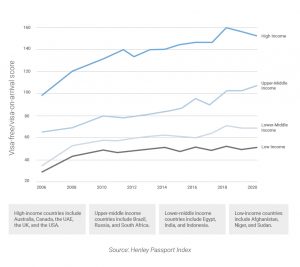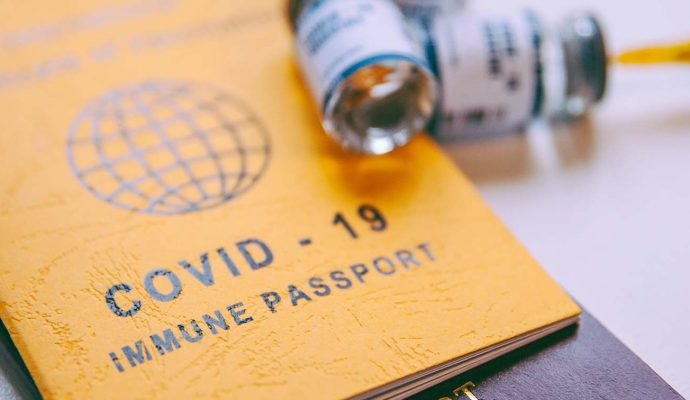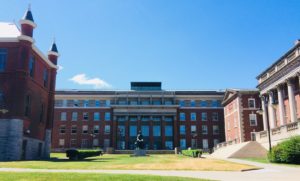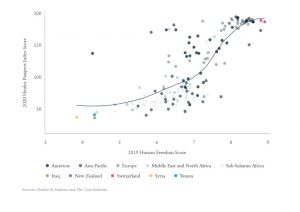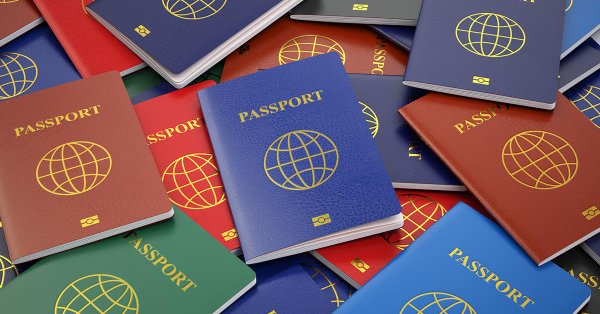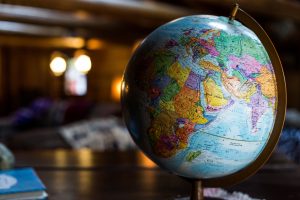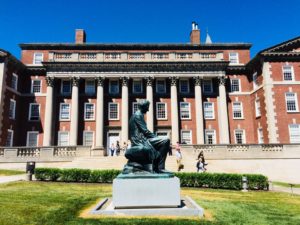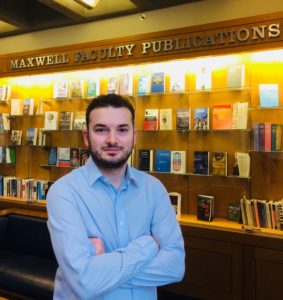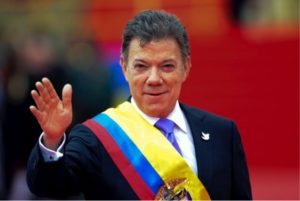Public Writing
Wealth, Geopolitics, and the Great Mobility Divide
by Ömer Zarpli and Uğur Altundal
While most countries have increased their visa-free access since 2006, some regions and nations have performed significantly better than others. By analyzing global trends during this period, it is apparent that upper-middle- and high-income countries have achieved visa-free access to most countries. With noticeable exceptions, citizens of lower middle- and low-income countries, and countries with higher fragility scores, enjoy far less travel freedom because they are deemed as being high-risk for security, asylum, and overstay. It is unfortunate that individuals who need international mobility the most, owing to political persecution and poverty, are the ones who lack travel freedom and are denied visas to wealthy and stable countries.
The Ethical Dilemmas Related to Covid-19 Vaccine Passports
by Uğur Altundal and Ömer Zarpli
Vaccine passports have been proposed as a solution that will allow cross-border travel to resume, thereby partially alleviating the negative economic impact of the Covid-19 pandemic. While they may bring a degree of normalcy to international travel, any decision on this issue must carefully take into consideration the associated ethical dilemmas and potentially adverse health effects.
The Relationship Between Political, Economic, and Travel Freedom
by Uğur Altundal and Ömer Zarpli
Using historic data from the Henley Passport Index and a range of other indices, we have discovered a strongly positive correlation between visa or travel freedom, and a variety of other indicators of economic, political and human freedoms.
Trends in Travel Freedom: The Effect of Travel Freedom on Economic Growth and Democracy
by Uğur Altundal and Ömer Zarpli
Over the past decade, travel freedom has expanded precipitously thanks to the rising number of bilateral visa-waiver agreements and unilateral decisions implemented by governments. In 2006, a citizen, on average, could travel to 58 destinations without needing a visa from the host nation; by 2018, this number had nearly doubled to 107. Yet despite the important progress made in overall global mobility, there remains a significant ‘global mobility divide’, with some passports much more powerful than others.
The Impact of Health Security on Travel Freedom
by Uğur Altundal and Ömer Zarpli
In general, governments adopt travel restrictions temporarily, in response to short-term health needs. For example, measures such as social distancing, which reduces face-to-face interaction, are believed to be effective in preventing the spread of airborne viruses such as COVID-19 and eventually bringing down the number of infections. As a result, governments have issued travel bans and stay-at-home orders, canceled international flights, and closed border entry checkpoints. Although for now these steps seem to have been taken temporarily, they are likely to affect international mobility in the long run for several reasons.
Ranked: The World's Least Powerful Passports in 2019
Our research with Omer Zarpli has been was cited in the Newsweek article "Ranked: The World's Least Powerful Passports in 2019." "Despite the important progress made in overall global mobility," Altundal and co-author Omer Zarpli write in their contribution to Henley and Partners annual report on global mobility, "there remains a significant ‘global mobility divide’, with some passports much more powerful than others." 01/11/19
U.S.-Turkey Visa Suspension
In October 2017, I was interviewed by Gabe Stern from the Daily Orange regarding the US and Turkey visa suspension.
Saving Juan Manuel Santos
On October 7th, 2016, the Nobel committee awarded Colombia’s el presidente, Juan Manuel Santos, the Nobel Peace Prize. It was only five days after the peace referendum in Colombia which was rejected by 50.2% of the valid vote. Having been underestimating the concerns of the “no” camp, Santos was criticized; some Colombian intellectuals even raised their voices and expected him to resign. Thanks to the Nobel Peace Prize, however, Santos comes out of the crisis stronger. He will most likely strengthen his hand against the leader of “no” campaign, former President Álvaro Uribe, as well as against the Revolutionary Armed Forces of Colombia (FARC).
